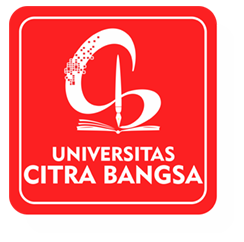PENGARUH PENDEKATAN MATEMATIKA REALISTIK TERHADAP HASIL BELAJAR MATEMATIKA SISWA KELAS IV SDK MUDER TERESA KOTA KUPANG
Keywords:
Pendekatan Matematika Realistik, hasil belajar Matematika., research is quantitative research, using the realistic mathematical.Abstract
ABSTRAK
Penelitian ini bertujuan untuk mengetahui ada tidaknya pengaruh pendekatan Pembelajaran Matematika Realistik (PMR) terhadap hasil belajar matematika siswa kelas IV SDK Muder Teresa. Penelitian ini dilakukan di SDK Muder Teresa. Penelitian ini adalah penelitian kuantitatif dengan menggunakan Pendekatan Matematika Realistik. Dalam penelitian ini teknik sampling yang digunakan adalah sample random. Dari seluruh kelas populasi, diambil dua kelas sampel yaitu kelas IV A sebagai kelas eksperimen dengan diberi perlakuan pendekatan PMR dan kelas IV B sebagai kelas kontrol dengan pembelajaran langsung. Analisis data dalam penelitian menggunakan teknik analisis statistik deskriptif dan analisis statistik dinferensial yang dibagi dalam dua tahap, yaitu tahap awal yang merupakan tahap pemadanan sampel dan tahap akhir, yang merupakan tahap analisis data untuk menguji hipotesis penelitian.
Hasil penelitian yang di peroleh dari analisis data yaitu menunjukan bahwa tes hasil belajar matematika siswa dengan menggunakan pendekatan matematika realistik pada kelas eksperimen lebih tinggi di bandikan dengan metode konvensional pada kelas kontrol. Maka dapat disimpulkan bahwa pendekatan Pembelajaran Matematika Realistik Indonesia (PMR) berpengaruh terhadap kemampuan pemecahan masalah matematika siswa. Hal ini dapat dilihat dari hasil rata-rata nilai posttes kelas eksperimen lebih tinggi dari kelas kontrol.
ABSTRACK
Thisstudy aims todeter min ew het hert hein fluence ofthe Realistic mathematics Learning (PMR) approach tothema the matics learning resultsof the first-class IV SDK Muder Teresa.This research wascon ductedin the Muder Teresa SDK. This research is quantitative research using the realistic mathematical approach. In this research the sampling techniques used are random samples.
Of the entire population class, two sample class esweretakenas Class IV A asan experiment al class with thet reatment of PMR and class IV B approach esas control class es with direct learning. Analysis of data in research using descriptive statistical analysis techniques and dinferential statistical analys esa redivided intotwop hases,namely the intialstag ewhich is thesample compactan cestageand the final stage, whichis the data analysis stage for Examine the research hypothesis. Theresult soft he research obtained from data analysis are showing that students'mathematical learning testsusing realistic mathematical approach to the experimental class were higher in the conventional methodof the control class. It can becon cluded that the Indonesian realistic mathematics Learning (PMR) approac haffectst he ability of students' mathematical problem solving.Thiscan be seen from the average result sof the experiment class Posttest value hig hert hant hecontrol class.
Downloads
Published
Issue
Section
License
Every works in SPASI is licensed under a Creative Commons Attribution-ShareAlike 4.0 International License.
Authors who publish with this journal agree to the following terms:
- Authors retain copyright and grant the journal right of first publication with the work simultaneously licensed under a Creative Commons Attribution License that allows others to share the work with an acknowledgment of the work's authorship and initial publication in this journal.
- Authors are able to enter into separate, additional contractual arrangements for the non-exclusive distribution of the journal's published version of the work (e.g., post it to an institutional repository or publish it in a book), with an acknowledgment of its initial publication in this journal.
- Authors are permitted and encouraged to post their work online (e.g., in institutional repositories or on their website) prior to and during the submission process, as it can lead to productive exchanges, as well as earlier and greater citation of published work (See The Effect of Open Access).




